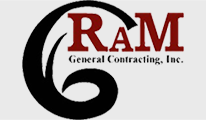RAM Family of Companies
Call us Today! 320-485-2844
Building Planning
The important steps of any building project come long before construction starts. During the planning phase of the building process we take a rough idea and turn it into a detailed plan. To ensure that this step goes as smoothly as possible here are some tips on what you can do to prepare.
1. Decide on a clear purpose for your building.
Think about the best ways to fulfill that purpose in terms of size, internal layout and external features like door and window placement. It’s important to have these details hammered out before construction begins because altering the plans later on can create delays and increase your overall construction costs.
2. Plan your budget.
Plan based on the total project and not just the building costs. Many people can simply forget to budget for the things they’ll need to finish off their project. Electrical, plumbing, and HVAC are a few of the common things that people forget about when laying out their budget on paper. This can cause a project to run over budget or cause your building to have an unfinished look if the money runs out.
3. Do your homework.
Talk to your local authorities and get as much information about building codes and necessary permits that apply to your building. Be sure that you understand what is required to meet your local codes. Failed inspections can create delays and a little knowledge can prevent costly mistakes. RAM Buildings does everything in their power to ensure that your building will meet or exceed all local building codes for your area. but it never hurts for you to understand what is required as well.
4. Be sure to check out your building contractor.
A simple call to the Better Business Bureau in their area can save you a lot of headaches and trouble down the road. RAM Buildings invites you to check out our history. Ask for contractor license number and check with your state for any issues.
5. Ask for proof of insurance
And most importantly ask for your building contractor’s proof of insurance. To protect your assets your contractor should have builders risk, commercial liability and workman’s compensation.


